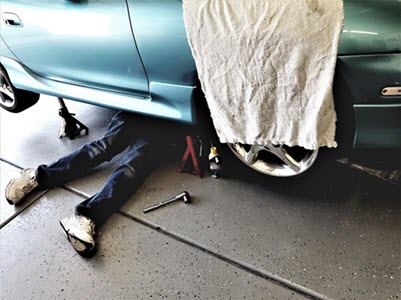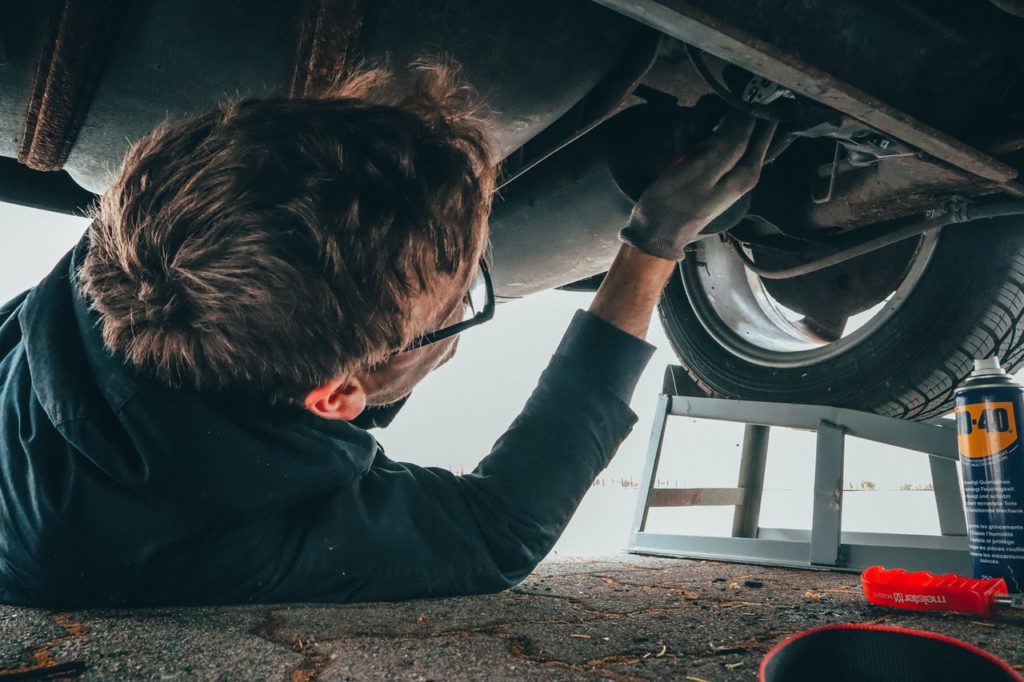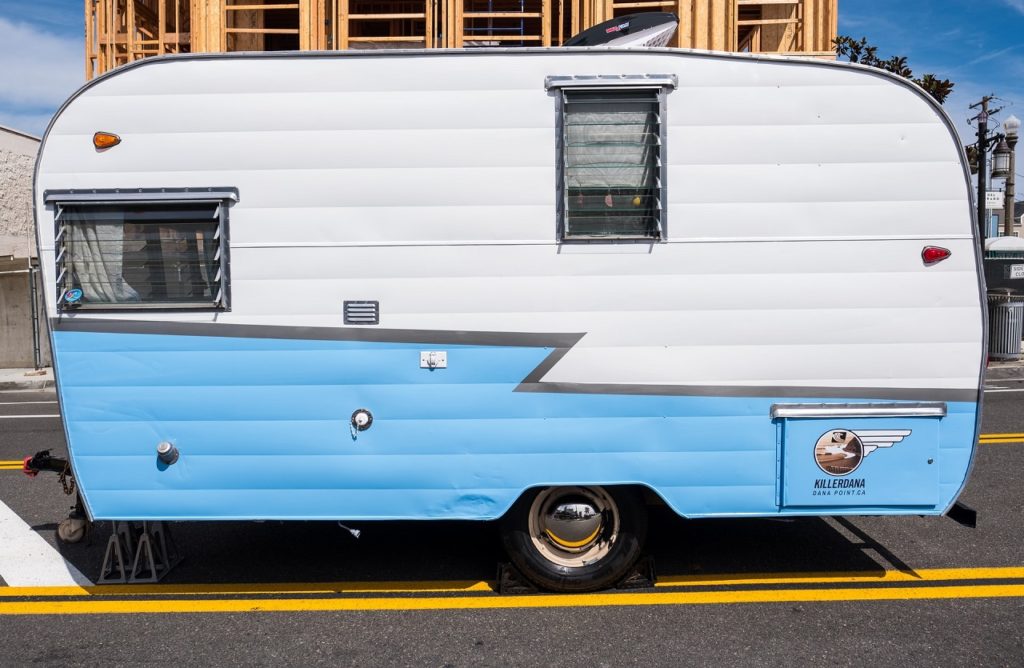When life gives you lemons, you have no choice but to make lemonade, right? But what if it gives you a lemon car? What should you do then?
Well, let’s just say you’re going to need a whole lot more than a glass of lemonade to cool you off. Thankfully, the lemon law exists for this purpose.
It compels auto dealers and car manufacturers to issue a full refund or replace the vehicle entirely if they sold you a defective car and are unable to fix it within a reasonable amount of time.
Talk about sweetening what would otherwise be a sour situation.
So, what is the lemon law anyway and, in what situations does it apply? Here’s everything you need to know about it.
What Is a Lemon Car?
A car is defined as a “lemon” if it contains a substantive defect that an automaker or dealer can’t fix within what would be deemed a “reasonable amount of time.”

The threshold required to render a vehicle a lemon may vary from one state to the next.
For instance, if you purchased a car with a substantial engine effect, for instance, would it be considered a lemon in the eyes of the law? Or, if it had a botched paint job but, everything else about it was in stellar condition, would it still be a lemon? Ultimately, it all comes down to your state’s lemon laws.
Keep in mind that not all states have lemon laws in place. So, it is important to examine whether the existing consumer protection laws in your state provide for lemons.
That said, at times, your issue may be protected under federal laws.
Federal Lemon Law
§ 2301-2312 of Title 15 Chapter 50 of the US Code sets out regulations for various types of consumer products covered under written warranties. This federal statute is also commonly known as the Magnuson-Moss Warranty Federal Trade Commission Improvements Act.
If you think about it, making a lemon law claim is essentially asserting that your car did not live up to its warranty. However, the warranty in question does need to be airtight if you hope to build a solid case for your claim.
A common question people often ask is – Is there a lemon law for used cars? Yes, there is.
Lemon law protection doesn’t only apply to brand new cars. Used cars and trucks are also covered, provided that they were sold with valid warranties.
§ 2304 (a) sets out the federal minimum standards for warranties. If a particular product or its respective part is defective or malfunctions, even after the warrantor has made a reasonable number of attempts to correct the issue, federal consumer law compels them to either refund the consumer, or replace the product or defective component at no additional cost.
This, however, has to be done within a reasonable time frame.
Lemon Laws by State
Several states have lemon laws that complement the US Code. These may vary depending on the state you live in, but the bottom line is – they all work in the same way as federal statutes.
Take Michigan, for instance. The state is home to several automakers. The lemon law here allows you to sue for a refund or replacement vehicle if the carmaker fails to resolve a particular issue after four attempts.
Your car also needs to have been kept out of use due to repairs for a specific amount of time. It could be anywhere between 30 to 90 days, depending on the state.
Finally, you have to consider when the problem first presents itself. You can’t very well sue the manufacturer or seller for issues that crop up two or three years after you first buy the car.
You can only launch a claim if the problems occur within the coverage period of the warranty. More often than not, this falls within the first 12 months from the vehicle delivery date.
Lemon laws are very state-specific. So, the definition of what would be considered a “major defect” or “reasonable number” of repair attempts may render a car a lemon in one state but not in another.
You’ll need to get in touch with a local lemon law attorney who is well-versed in your state’s laws to get the help and information you need to move forward with your claim.
Substantive Defect
What exactly qualifies as a substantial defect? To put it simply, it is a problem that’s covered within the warranty that devalues the car.
It could also be an issue that raises potential safety concerns like a steering problem or a faulty braking system. These would be considered major issues.
On the other hand, problems with the door handles or radio knobs are considered minor and would not qualify for a lemon law claim.
As is the case with most legal definitions, the line between what is considered “major” or “minor” is often blurred. Defective paint jobs or even horrendous odors have, in the past, been found to be substantive defects.
Nonetheless, the one thing that all states have in common is that the major defect should have occurred within a predefined period or a certain number of miles. Keep in mind that the issues in question should not have come about as a result of abuse.
Reasonable Number of Repair Attempts
The lemon law also requires that you allow the car manufacturer or dealer to make what would be considered a “reasonable” number of attempts to repair the substantive defect.

Your car can only be considered a lemon once these attempts at resolving the problem fail. To be protected under your state lemon law, you’re required to meet one of the following criteria.
- For serious safety defects like anomalies that involve the steering or braking system, the issue needs to remain unresolved after no more than one repair attempt
- For minor safety defects, the issues need to remain unresolved after three to four repair attempts. This number, however, varies by state
- If the car is in the auto repair shop for a specified number of days – typically 30 in one year – to fix one or more major defects, the vehicle in question fits the definition of a lemon
Consumer Remedies – Getting a Refund or Replacement Car
Once your car fits the definition of a “lemon” according to your state laws, it is your legal right to pursue a refund from the dealer or manufacturer. You could also have them replace it entirely.
While this process is different in every state, the common denominator in all of them is that you first have to notify the manufacturer or dealer. If you’re not satisfied with the settlement offer you receive from them, you may have to pursue it in a court of law. Most courts, however, require that you first go to arbitration.
Car dealers and manufacturers use several different arbitration programs. In most cases, they are the ones who decide on the arbitration program for you. But, if you have a choice, it is always better to go with a state consumer protection agency program, as opposed to a private one or the manufacturer’s in-house program.
Keep in mind that vehicle manufacturers spend loads of cash, retaining the best team of lawyers money can buy. And, you can be sure that you’ll be up against lemon law experts who know everything there is about these particular statutes.
So, if you want to get the best outcome, you’re better off getting the best consumer law attorney to represent your interests.
New Car Lemon Law
In most states across the country, the lemon law is only applicable to new cars. In New York State, for instance, the new car lemon law protects personal-use vehicles registered, leased, or sold within the state, against all material defects for two years or 18,000 miles – whichever comes first.
If you experience any issue with your car during this period, you first have to report it to the authorized dealer or manufacturer, who must then rectify it at no additional cost. If, after four or more attempts, the issue remains unresolved or your car ends up being out of service for 30 or more days, they are obligated to issue you with a replacement car or a full refund.
In Massachusetts State, on the other hand, the new car lemon law applies to both brand new cars as well as vehicles with less than 125,000 miles at the date of purchase.
Used Car Lemon Law

Lemon laws in all states cover brand new cars. What most people may not be aware of is that used car lemon laws exist in several states too.
States that don’t have an explicit lemon law in place do have other statutes that compel used car dealerships to provide a comprehensive warranty on the vehicles they sell. This does offer some kind of lemon law protection.
However, unlike lemon laws for new cars, if something in a used vehicle breaks during the warranty period, you’ll need to take your vehicle to the dealership as opposed to appealing directly to the manufacturer.
One important thing you need to bear in mind is that if you buy a used car from a private seller and not a dealership, you’ll likely not enjoy the used car lemon law protections in your state.
If you’re in a situation where an individual sold you a lemon, the best course of action to take is to speak to a lemon law attorney and explore the various legal remedies available.
The value of your vehicle is something else you’ll need to consider. If it is valued at less than $3,000, for instance, you’re better off filing a suit in small claims court. The cost-benefit ratio of retaining an attorney to sue on your behalf instead, won’t make financial sense.
RV Lemon Law
Buying a motorhome is easily one of the biggest investments you’ll ever make in your lifetime. But, what happens if you end up purchasing a motorhome, travel trailer, 5th wheel trailer, or any other type of recreational vehicle (RV), and it turns out to be defective? What then?

The good news is that both state and federal lemon laws can help you get a legal remedy that protects you against losing your entire investment.
Some of the lemon laws in various states do not cover motorhomes or anything that would be classified as a recreational vehicle. Nonetheless, this shouldn’t stop you from pursuing a legal claim under the Magnuson-Moss Warranty Federal Trade Commission Improvements Act.
That being said, although some states do cover leased or purchased RVs, it’s important to keep in mind that these are usually treated differently from regular cars.
For instance, the scope of some state lemon laws only extends to defects in the RV chassis. In others, the law only applies to the “non-living” areas of the RV. In some states, the chassis cab, chassis, and propulsion system may be covered, but not any other parts of the motorhome.
The scope of what’s covered and what’s not is all over the spectrum. So, if you’re stuck with a lemon RV, ensure that you seek immediate legal advice from a consumer law attorney who’s well-versed in recreational vehicle lemon law.
Get Legal Help From the Best Consumer Law Lawyer
If you’ve bought a new or used vehicle, and suspect that it may be a lemon, there are several legal options you can pursue under federal and state lemon law.
While it is possible to handle the issue yourself by getting in touch with the car dealership or manufacturer directly, doing this may not yield the outcome you expect. It’s always a good idea to get a consumer attorney to help you out.
